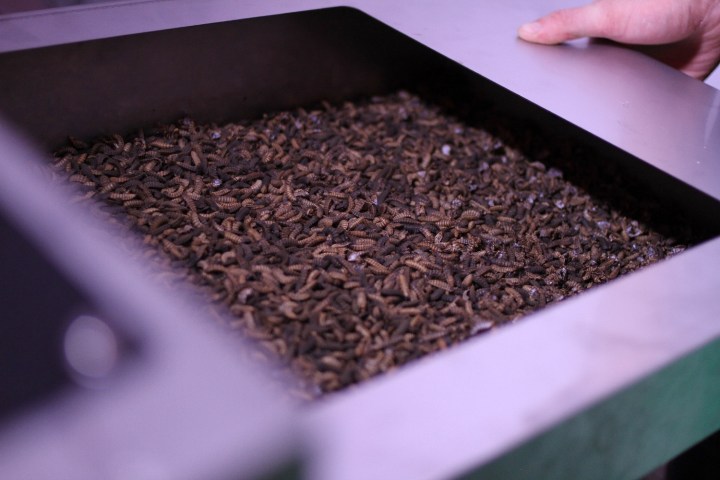
“Our mission is to bring a stop to the degradation of our beautiful planet and stop taxing its finite natural resources,” Keiran Olivares Whitaker, CEO and founder of Entocycle, told Digital Trends. “For 60-odd years mankind has savaged seas and rainforests in order to farm fish and grow crops to feed to animals for meat. So much so that 50 percent of our fish populations have crashed in the last four decades, and 4 million hectares of rainforest are cleared each year for crops. Animals don’t need fishmeal or soy meal to be healthy. We can feed them insects instead — which is many animals’ natural choice in the wild anyway.”
Insects can be farmed more efficiently and sustainably than any other crop and black soldier flies are better in this regard than most other insects. For example, while crickets can be made into protein feed, they need to be fed on chicken feed or flour. The larvae of black soldier flies, meanwhile, will eat virtually any waste food, which they then convert into protein and fertilizer. It’s a simple and natural process, which Entocycle then hones with some cutting-edge technologies — including smart pods that gather constant analytics about the insects and their development.
At present, Whitaker says the company is focused on its mission of making animal feed. That remit is likely to expand in the future, though.
“We have big ambitions and so we would be keen to explore producing insects for the human diet in future because it just makes so much sense to,” he continued. “They are highly nutritious, the black soldier fly doesn’t carry disease, and is a completely sustainable source of food. Once people are over the ‘ick’ factor — which is only really a prevailing attitude in the west — then there is nothing to stop insects becoming part of a person’s regular, healthy diet. It would take a great shift in attitudes and behavior, and I think we would very much one day aim to be a part of that.”
Grub’s up!
Editors' Recommendations
- Bosch shows off security assistant and souped-up food processor at CES
- Grub’s up? Lab-grown insect meat could be the future of food production


